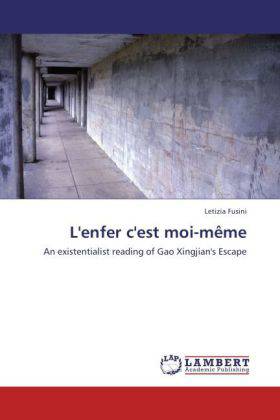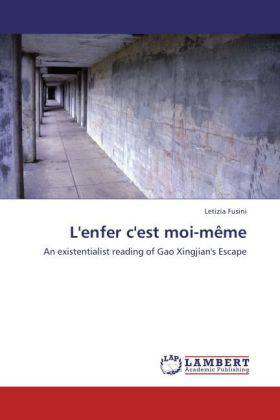
- Afhalen na 1 uur in een winkel met voorraad
- Gratis thuislevering in België vanaf € 30
- Ruim aanbod met 7 miljoen producten
- Afhalen na 1 uur in een winkel met voorraad
- Gratis thuislevering in België vanaf € 30
- Ruim aanbod met 7 miljoen producten
Zoeken
L'enfer c'est moi-même
An existentialist reading of Gao Xingjian's Escape
Letizia Fusini
Paperback | Engels
€ 63,45
+ 126 punten
Omschrijving
Focusing on the work of the first Chinese-born Nobel Laureate in Literature Gao Xingjian, the scope of this study is to provide an existentialist reading of one of his most controversial plays: "Escape". Written in the aftermath of the Tiananmen square massacres in 1989, this play explores the ways in which an individual, when placed in a situation of physical confinement and extreme emotional distress, is forced to confront the inescapable realities of the human condition, i.e. captivity, exile, the Ego and ultimately death. In an attempt to challenge the general claim whereby such play would express a personal political stance by its author, its content will be analysed in the light of a comparison between the latter and Jean-Paul Sartre s existentialist pièce "No Exit". By focusing on how the two writers dramatise their own ideas on the relationship between selfness and otherness, we seek to demonstrate that Sartre and Gao share the same beliefs on the reflexivity of such relationship. That leads us to conclude that hell is neither the other nor the self per se but lies in the encounter between the two.
Specificaties
Betrokkenen
- Auteur(s):
- Uitgeverij:
Inhoud
- Aantal bladzijden:
- 64
- Taal:
- Engels
Eigenschappen
- Productcode (EAN):
- 9783847345268
- Verschijningsdatum:
- 3/02/2012
- Uitvoering:
- Paperback
- Afmetingen:
- 152 mm x 229 mm
- Gewicht:
- 104 g

Alleen bij Standaard Boekhandel
+ 126 punten op je klantenkaart van Standaard Boekhandel
Beoordelingen
We publiceren alleen reviews die voldoen aan de voorwaarden voor reviews. Bekijk onze voorwaarden voor reviews.











